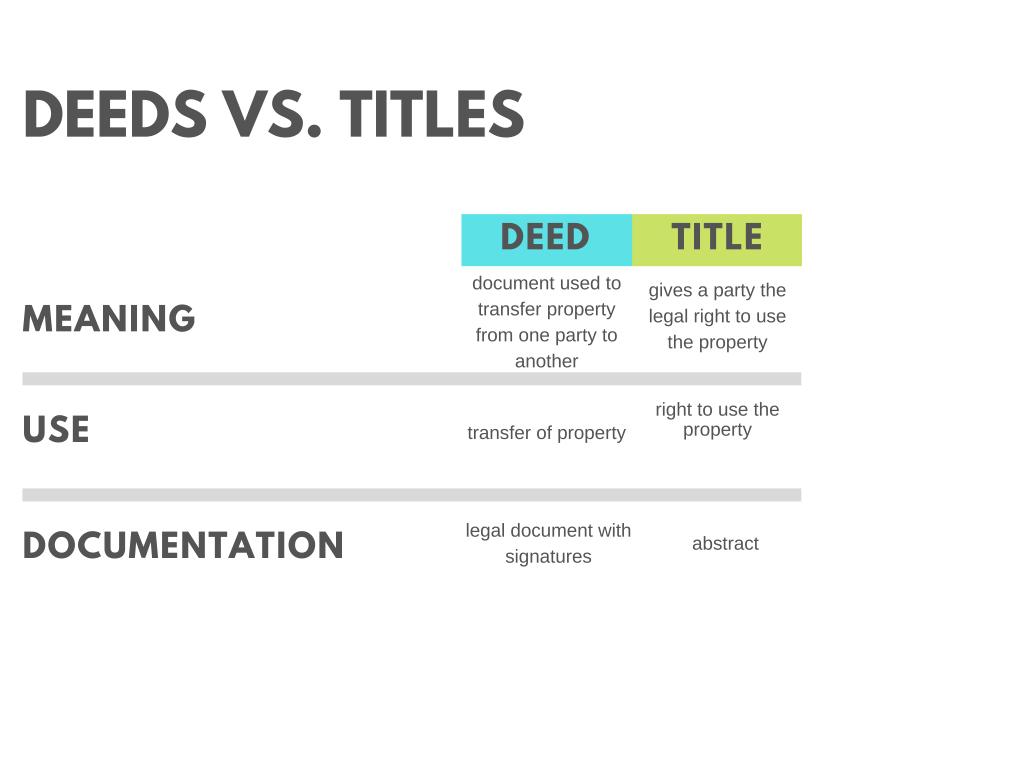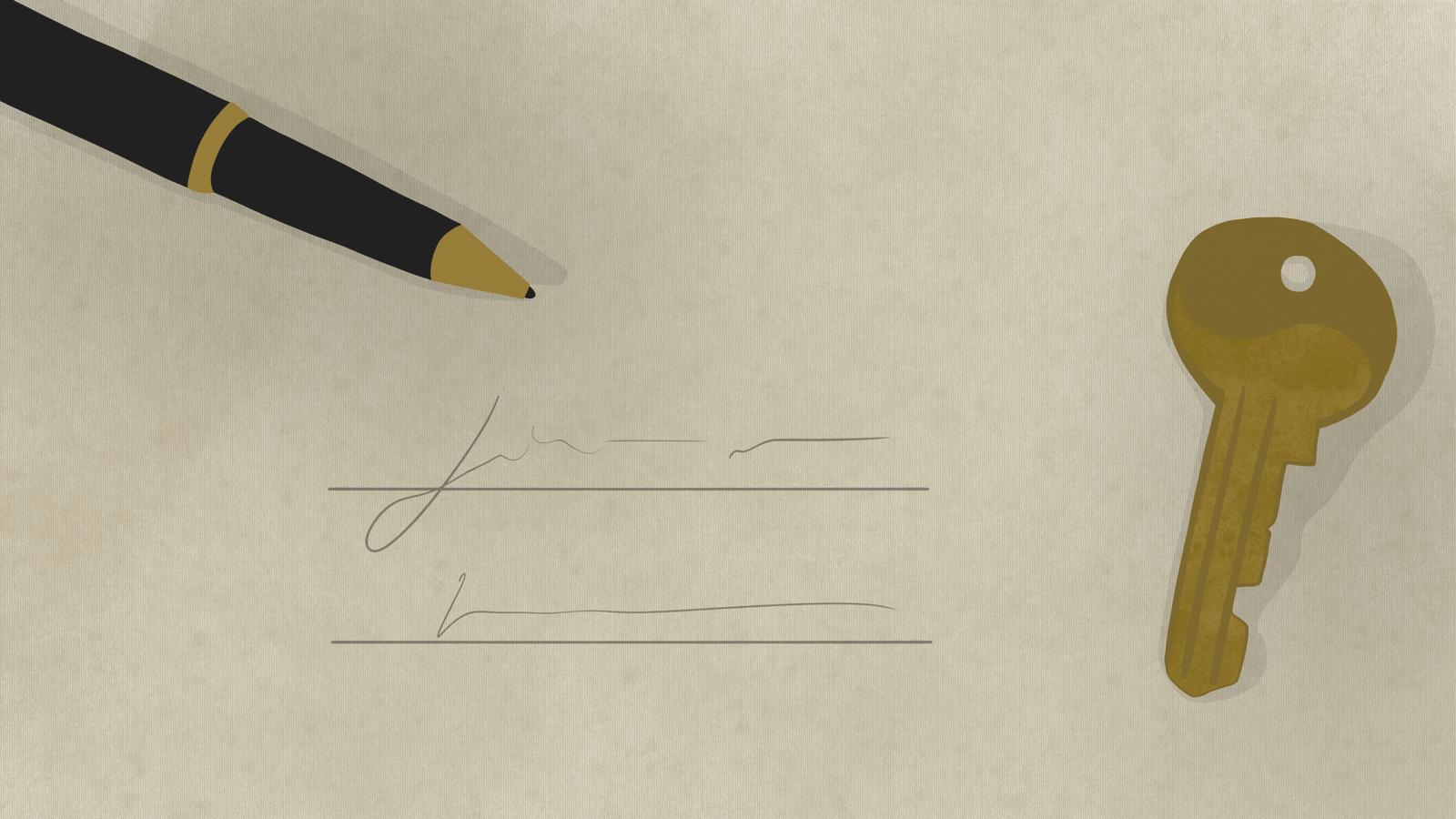Trying to differentiate between deeds and titles can leave you with more questions than answers. In fact, many people think that they’re the same thing, or mistake one for the other.
Here’s something to bewilder you further: one you can hold in your hand, and the other you can’t even touch. Confused yet?
Like comparing apples to oranges, deeds and titles are two very different things. With that, let’s resolve the deed vs. title puzzle once and for all.
In this article:
What is a Real Estate Deed?
A deed is a real, palpable document that transfers ownership from one individual to another. The document, which must include special language indicating that it is a deed, is the legal vessel that carries over ownership of something from one party to another. You can think of the deed as a vehicle driving over a very important, legally-recognized message — one that bestows new responsibilities on the receiving party.
After you buy a home, the deed — which shows that you legally own the property — is recorded in the county in which the property is located (usually by your title company). States have different recording laws, but most follow the same guidelines and regarding recording. After the deed is recorded, the original copy is typically mailed to the new owner. After closing, you may receive the deed in a few weeks, but sometimes, it can take a few months.
What is a Title?
While the deed is the message, title is the power that comes with that message. Regarding property, if you have title, it means that you have the legal right to use, sell, alter, and enter the land. Since title isn’t something you can hold in your hand, it’s a concept — like being the mayor of a town. You have special governing rights in accordance with the law, and title essentially works the same way. You have unique authorities that come with holding interest in the home and bear title to it. If you own the home with someone else, then you have partial interest, but you still hold title.

